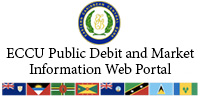- The IMF Executive Board approved the request of Saint Vincent and the Grenadines for emergency financing assistance of about US$16 million to help address the challenges posed by the COVID-19 pandemic.
- The pandemic has hit Saint Vincent and the Grenadines hard. Tourism receipts have dried up, as tourism arrivals have come to a complete halt.
- IMF support will help cover some of these needs and allow the government to ease the impact on the population including increased spending and health and social protection.
The Executive Board of the International Monetary Fund (IMF) approved a disbursement to Saint Vincent and the Grenadines following its request under the Rapid Credit Facility (RCF) mechanism, for SDR 11.7 million (US$16 million), to help cover its balance of payment and fiscal needs stemming from the outbreak of the COVID-19 pandemic. The disbursement is set at the maximum available access under the RCF instrument of 100 percent of quota. Saint Vincent and the Grenadines is a small state, vulnerable to external shocks, including large natural disasters.
The pandemic has hit Saint Vincent and the Grenadines hard. Tourism receipts have dried up, as tourism arrivals have come to a complete halt. The economy is now projected to contract by 5.5 percent —7.8 percentage points below pre-COVID-19 projections. A drop in fiscal revenues, combined with additional direct health and social expenditures, will increase the fiscal deficit and financing needs. IMF support will help cover some of these needs and allow the government to ease the impact on the population.
Following the Executive Board discussion of the requests, Mr. Tao Zhang, Deputy Managing Director and acting Chair, made the following statement:
“The COVID-19 pandemic poses a major challenge to Saint Vincent and the Grenadines. The tourism sector, a key driver of economic growth in the country, has come to a complete halt with ripple effects across the economy. Lower tourism receipts and remittance inflows, coupled with decreased foreign direct investment, have given rise to an urgent balance of payments need. The authorities also face large fiscal needs to immediately increase public health spending and support the most vulnerable.
“The authorities have responded to the pandemic by swiftly implementing containment measures and a fiscal package, which includes an increase in funding for the health sector, various public construction projects to generate jobs, financial support to agriculture and fishery sector, and programs to support displaced workers and the most vulnerable.
“The Eastern Caribbean Central Bank (ECCB) also took measures to facilitate the provision of credit and safeguard financial stability. The ECCB and national supervisors are also working closely and keep intensified monitoring of financial sector vulnerabilities.
“The authorities are committed to meeting the regional debt target of 60 percent of GDP by 2030. Once the crisis has abated, they plan to reprioritize capital spending, contain the growth of the wage bill, enhance taxpayer compliance, and rationalize exemptions from import duties and VAT on imports.
“IMF emergency support under the Rapid Credit Facility will help fill Saint Vincent and the Grenadines’ balance of payments needs. Fund financing will also help catalyze additional donor support. The authorities are committed to ensuring transparency and good governance in the use of COVID-19-related spending.”
SOURCE: International Monetary Fund (IMF)



